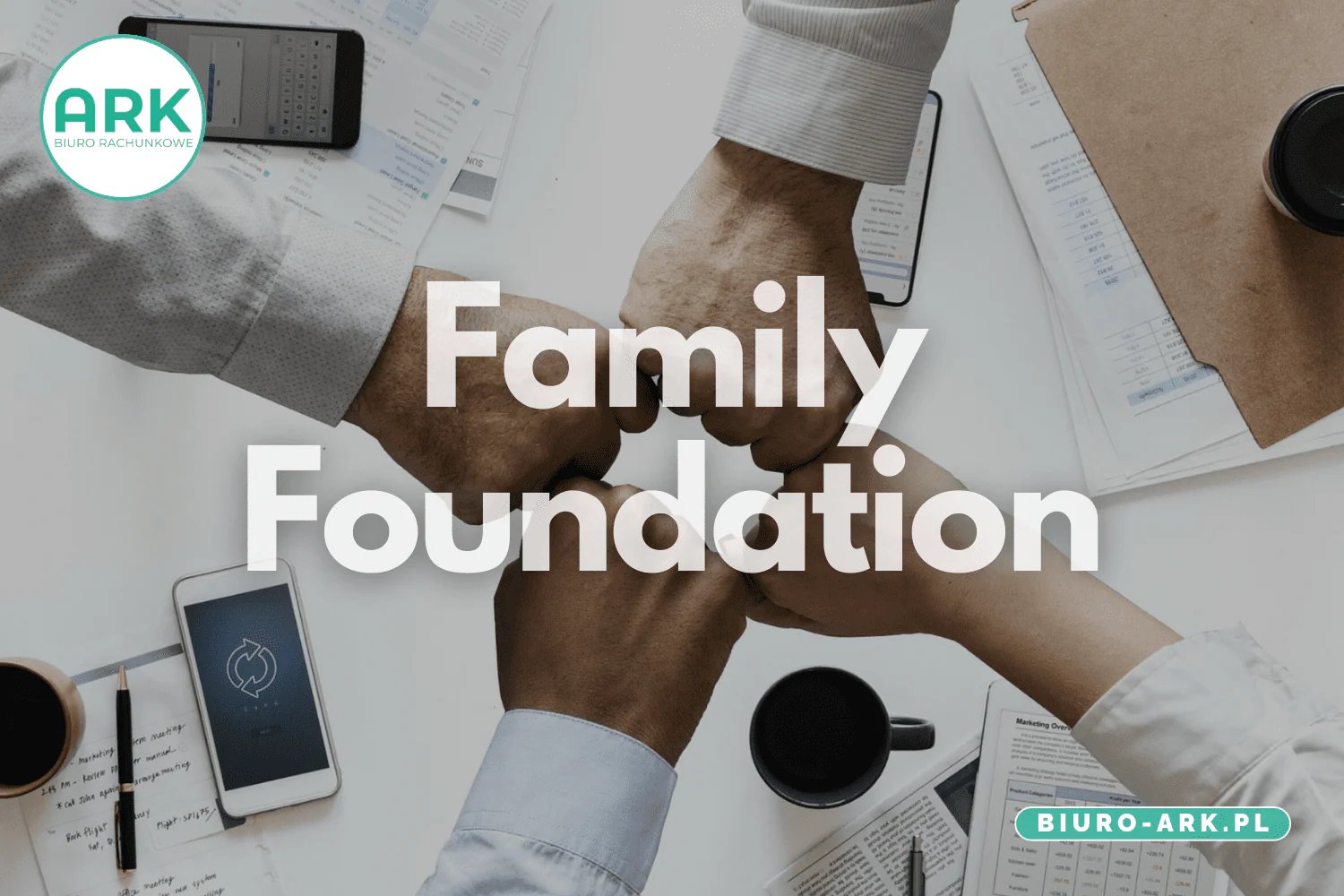Family Foundation in Poland – Pros and Cons of the New Wealth Protection Tool

Since May 2023, Poland has introduced a new legal structure to help business owners and families manage wealth and succession planning: the family foundation (fundacja rodzinna). While this concept is already well-established in countries like Germany or Austria, it’s still relatively unknown among Polish entrepreneurs and foreign investors operating in Poland.
In this article, we explain how the Polish family foundation works, what benefits it offers, the legal and tax risks involved, and who can benefit most from this structure.
What is a family foundation?
A family foundation is a separate legal entity established by an individual (the founder), who transfers selected assets to the foundation. From the moment of registration, the foundation takes over the management of those assets and operates on behalf of designated beneficiaries – usually family members.
Unlike a typical business, a foundation’s purpose is not to generate profit, but rather to preserve wealth, manage it over time, and support family members financially based on predefined rules. However, limited business activities are permitted, such as renting properties, investing in securities, or issuing loans.
Important: The foundation is not part of a company – it is a separate legal subject with its own governance and strategy. It can invest and grow the wealth independently from the business itself.
Key benefits of a family foundation
✅ 1. Clear and conflict-free succession planning
The founder can precisely define who receives what, under what conditions, and when. This minimizes the risk of inheritance disputes and avoids splitting company ownership between heirs.
✅ 2. Preserving family business integrity
Family foundations help prevent fragmentation of shares and loss of control when passing down a business through generations. It ensures continuity and stability.
✅ 3. Flexible rules for distributions
The founder decides how, when, and to whom the foundation can distribute profits. For example, payments can be limited to family members actively working in the business, or tied to specific achievements like education milestones.
✅ 4. Asset protection
Once transferred, the assets belong to the foundation – not the founder or their business. This protects wealth from personal liabilities, court disputes, or creditors.
✅ 5. Simple creation and legal clarity
A foundation can be created by notarial deed or testament. Registration is handled via a special online register maintained by the Ministry of Justice. The minimum initial asset value is PLN 100,000.
💡 Example
Agata has run a family bakery for over 25 years. She wants her grandchildren to take over but avoid conflicts over inheritance. She creates a family foundation and states in its charter that only those who work in the bakery for at least 5 years are eligible to receive profits. This ensures operational continuity and protects the business from being diluted.
Disadvantages and risks to consider
⚠ 1. High entry threshold
The minimum capital required is PLN 100,000, a potential barrier for small businesses or sole proprietors.
⚠ 2. No withdrawal of assets
Assets once transferred cannot be returned – even to the founder. This structure is designed for long-term use and is not a flexible liquidity tool.
⚠ 3. Tax at dissolution
If the foundation is liquidated and the assets are distributed, a 15% corporate income tax (CIT) applies to the profit earned.
⚠ 4. Restrictions on payouts
Even if the charter allows distributions, payouts are legally blocked if the foundation has outstanding debts or tax obligations.
⚠ 5. Legal obligations and liability
Board members (management) can be held personally liable for mismanagement or failure to comply with tax and reporting requirements.
Who should consider a family foundation?
This structure is particularly useful for:
- owners of mid-sized and large family businesses,
- entrepreneurs planning multi-generational succession,
- families with significant real estate, business shares, or investment portfolios,
- anyone seeking to separate wealth management from day-to-day business operations.
For small or early-stage businesses, a family foundation might be too complex or costly. In such cases, simpler alternatives may be more appropriate:
- inheritance via a will,
- strategic gifting with usufruct rights,
- transforming the business into a limited liability company (sp. z o.o.).
Summary: Long-term control, but not for everyone
The Polish family foundation is a forward-thinking tool for securing generational wealth and ensuring business continuity. It allows founders to maintain strategic control, reduce legal risks, and clearly define how and by whom wealth is accessed.
However, it’s not a one-size-fits-all solution. It requires financial planning, legal compliance, and a willingness to commit assets over the long term. If structured well, it can become a cornerstone of a stable family legacy.
📩 Wondering if a family foundation is the right fit for you?
Let’s talk schedule a personal consultation to explore your options.